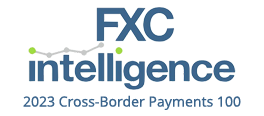FX options for business

Maximise growth and hedge your exposure to exchange-rate fluctuations with our range of forex options.
- Competitive rates from 16 different liquidity providers
- Award-winning service
- Expertise from our team of professional account managers
- Range of vanilla and premium-free FX options to suit your business requirements
Our experts offer effective FX solutions to help reduce your risk and manage your exposure to foreign exchange. If your business operates internationally, find out how we can help you achieve your growth objectives.
What are FX options?
Foreign exchange options are powerful tools that can be used to as part of your business’s currency exchange strategy. There are a range of instruments available and selecting the most appropriate will depend largely on your circumstances and needs. Some FX options can help mitigate your exchange-rate risk while others can give you the opportunity to outperform current market rates but involve taking on additional risk. Our team of experts can help you understand the risk and reward benefits for each option, so you can make an informed decision.
At Moneycorp, we offer a variety of foreign exchange options for businesses, ranging from vanilla options to more advanced instruments such as collars. For those wishing to hedge against currency fluctuations, options can offer a favourable solution. They can bee specially useful when the currencies in question are subject to volatile movements, there is great political uncertainty and/or if trading conditions are unpredictable.
Why would your business need an FX option?
If you participate in international trade through importing goods, selling overseas or paying international employee wages, foreign exchange options could provide significant advantages for your business.
In a world in which foreign currency exchange rates are in a constant state of flux, companies with international dealings run the risk of losing substantial sums of money if they fail to hedge their exposure to these shifts. Changes in base currency exchange rates can make your overseas supplier bills greater than anticipated, and even small movements in currency rates can cause substantial international payments to rise considerably.
This can, in turn, make it harder for your business to accurately budget expenses and plan for future success. Our forex options provide opportunities for your business to reduce its downside risk, making it easier for you to focus on what matters most: making your business thrive and grow.
Awards
A few notable recognitions we've received for our work in the international payments space.

Top 100 Cross Border Payment Company
FXC Intelligence

Best Payments Solutions Provider
Systems in the City

Best FX for Payment Solution
Global Finance
Types of forex options
Vanilla options
Vanilla options offer businesses the right, but not the obligation, to exchange one currency for another at a specified rate (known as the ‘strike rate’) on a specified date (the ‘expiry date’). These types of forex options can help a business to hedge against a worst-case exchange-rate scenario while enabling a favourable exchange-rate movement to be capitalised on. A consideration when it comes to vanilla options is that they carry an upfront cost known as the ‘premium’. We’ve explained this in more detail below.
Get started with vanilla options
Premium-free options
Much like vanilla options, premium-free FX options offer the opportunity to hedge against exchange-rate fluctuations but come without the upfront cost. However, some of the benefits of vanilla options are sacrificed. You may be obliged to trade at the time of expiry and the gains you can make may be capped past a certain point. Some premium-free FX options allow businesses to hedge their currency exposure at a pre-defined rate, while also benefiting from favourable moves in the market. This can make premium-free options an ideal hedging solution for some businesses when dealing with unfavourable fluctuations in currency exchange rates.
Moneycorp's premium-free FX options
We offer several premium-free FX Options at Moneycorp:
Collar options
Some businesses use collar options to manage their exchange rate risk by limiting their exposure to fluctuations that occur within a certain FX rate range.
These types of forex options can hedge against unfavourable FX currency-rate movements. They involve the simultaneous purchase and sale of different options. Although it limits participation in favourable movements, it generates a premium to enable the structure to be entered into at zero upfront cost.
The strike rates for both options are typically set within a certain range around the current exchange rate. This provides a 'collar' or limited range within which the effective exchange rate for the client can fluctuate.
If the exchange rate remains within this predefined range until the expiration date, the holder's position is effectively insulated from currency fluctuations.
If the current exchange rate moves beyond the range, the collar option hedges against adverse movement but also limits the potential financial gains that could be achieved if the rate moves in a favourable direction.
Participating forward contracts
Participating forwards are similar to forward contracts but with one key difference: they can allow you to benefit from favourable moves in the currency markets that occur between the date of the contract and the expiry date.
Participating forward contracts are a foreign exchange option that requires you to agree on a worst-case rate (the 'strike rate'). This means that you can exchange at the protected rate should the currency pair drift in an unfavourable direction. You can also participate in favourable movements for a percentage of the structure (this is usually 50%, but it can be tailored to your requirements).
Extendable FX options
These are a type of forex option that allows you to extend the period of the contract before the date of expiry is reached.
If you're considering this option, there are two main risks to be aware of. Rates could drop below the prevailing market by the time the contract expires and profit could be impacted by over-hedging.
Over 20 premium-free FX options
At Moneycorp, we provide more than 20 premium-free FX options. Call 0203 733 1022 or contact us online to find out how our forex trade options can help your business manage its exchange rate risk.
Please be advised that our options products may not be appropriate for all prospective clients.
What’s the difference between vanilla options and premium-free options?
The key difference between vanilla options and premium-free FX options is that vanilla options incur an upfront cost. Premium-free options, as the name might suggest, are a little different in this regard as they have no upfront cost – but they are more complex in nature.
Vanilla options:
- In order to acquire the right (not the obligation) to buy or sell a currency pair at an agreed rate, you will first need to pay an option premium.
- This premium is non-refundable, even if you decide you’d rather not exercise your option on the expiry date. This is important because there is a possibility that the prevailing FX spot rate might be more favourable to you at the expiration date.
Premium-free options:
- These are an attractive FX option for businesses that do not wish to pay a premium.
- To offset the cost of purchasing the right to buy foreign currencies at a more favourable rate, it is necessary to sell another currency option at the same time, which creates a potential obligation for the client to deal. The cost of one premium is thereby offset by the other.
Which FX option is right for my business?
The most effective foreign exchange option for your business depends on your overall risk management strategy, your international dealings, operating expenses and growth strategy. Each option comes with different levels of risk and advantages and they might not all offer the right solution for every business so it's important to consider these before committing.
Our experts can provide information on using options to trade forex. Get in touch to find out more about FX options for you and your business or take a look at our key information documents at the bottom of the page.
Find out how to limit the foreign currency exposure of your business with our brochure.
View the guideWhat are the alternatives to FX options?
Foreign exchange options are not for every business and there are several other foreign exchange solutions we offer which may be more appropriate to your requirements. These strategies include forward contracts and market orders, both effective approaches that can enable businesses to manage currency market volatility alongside their business operating expenses.
Forward contracts
Lock in the prevailing exchange rate for up to two years with a forward contract.
This can be an excellent tool to help you plan ahead and mitigate the risks from currency fluctuations, so you know exactly how much you will pay for international goods and services.
Find out moreSpot Contracts
Make an international payment with the current exchange rate by agreeing to a spot contract. This allows you to secure the rate for up to two days and reduces your risk in times of volatility.
Find out moreMarket orders
These are considered a basic FX order; they allow you to open a position at the current price so you can buy foreign currency quickly. There are a range of other, more advanced FX orders that allow you to buy at your chosen rate.
Find out moreWhy choose Moneycorp for your FX options?
Choosing the most effective foreign exchange options for your business can help you achieve significant growth and success. At Moneycorp, we provide a wide range of FX options and international currency hedging solutions to minimise risk and help you get the most out of your trades.
Here are just some of the reasons why you should choose Moneycorp for your forex currency options:
- 45 years of market experience
- International payments to 190 countries
- Specialists in foreign exchange with a personal, tailored service
- A wealth of FX options and products to suit your business needs
- Specialist dealing and Account Management team assigned to you
- A leading provider of cross-border payment and FX services
Dealing with international operations and trades can be complex and success often relies on timely exchanges. Our forex trade options can help provide a robust way to manage risk and enhance your broader business strategy. Get in touch to find out more about our services or visit our FAQ page.
Foreign exchange options FAQs
What are the benefits of FX options?
Forex options can provide a degree of reassurance and certainty in times marked by volatile currency movements, political uncertainty and difficult global trading conditions. As such, many businesses find options to be a cost-effective and beneficial part of their FX hedging strategy.
We provide a wealth of foreign exchange options to suit your business and risk tolerance level across a wide range of situations and international dealings, and we can give you the confidence to find the most effective solution for your needs.
What are the risks and disadvantages of forex options?
The main drawback of vanilla options is that they incur an upfront cost. Sometimes, you might have to exchange at a lower rate than the spot value, depending on market fluctuations. While FX options can assist your business when minimising risk and enable growth, many variables need to be considered when trading forex and it's impossible to guarantee a risk-free strategy due to influencing factors that can affect the market.
We can provide you with detailed information about the types of forex options that might suit your business.
Why use options instead of forwards?
FX options and forward contracts are both powerful risk-management tools that can be used to give you certainty about your cost of exchange. Unlike forward contracts, however, options can provide your business with a cost-effective solution if the market has turned in your favour by the time the expiry date arrives. Options contracts can also be structured in such a way that there is no immediate upfront cost, and can be tailored to meet your specific business needs..
How much does an FX option cost?
While many FX options can be structured with zero upfront cost, vanilla options require an upfront premium to be paid. This premium varies in amount and the price that you pay will depend upon how long you wish to hold the option, your strike rate and the volatility of the currency that you would like to exchange. Our Moneycorp experts can help you identify the costs and risks that are associated with an FX option for your business.
What other foreign exchange hedging tools do you offer?
We offer a full range of foreign exchange services, including foreign exchange audits and health assessments to measure your current risk in relation to the international market. As well as foreign exchange options, we also provide guidance across a range of FX solutions that can meet the unique needs of your business.
FX options key information documents
KID Extendible Participating Forward




